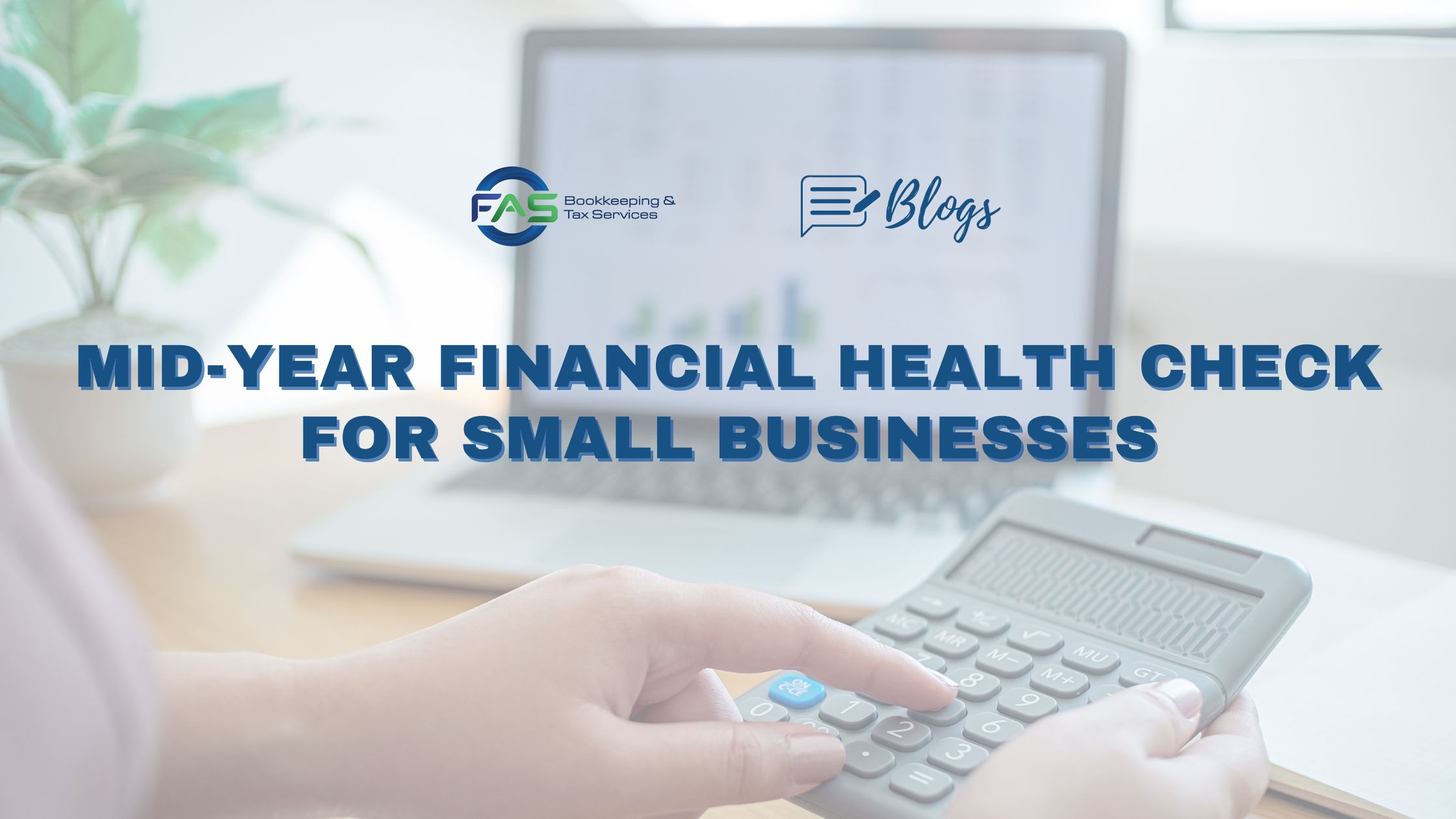Mid-Year Financial Health Check for Small Businesses
Performing a mid-year financial health check for small business is crucial to ensure your business stays on track and achieves its financial goals. This practice not only provides a snapshot of your financial health but also helps in making informed decisions for the remainder of the year.
Why a Mid-Year Financial Health Check is Important
- Evaluate Performance: Assessing your financial status midway through the year helps you understand how well your business is performing compared to your annual goals.
- Identify Issues: Early detection of financial issues allows you to take corrective measures before they become significant problems.
- Strategic Planning: A financial health check aids in strategic planning and budgeting for the second half of the year.
- Improved Cash Flow Management: By reviewing your finances, you can better manage cash flow, ensuring you have enough resources to cover expenses and invest in growth opportunities.
Steps for Conducting a Mid-Year Financial Health Check
1. Review Financial Statements
Start by reviewing your income statement, balance sheet, and cash flow statement. These documents provide a comprehensive view of your financial performance.
- Income Statement: Examine your revenues, expenses, and net income to determine profitability.
- Balance Sheet: Analyze your assets, liabilities, and equity to understand your financial position.
- Cash Flow Statement: Assess your cash inflows and outflows to ensure you have sufficient liquidity.
2. Analyze Key Financial Metrics
Evaluate key financial metrics to gain insights into your business’s financial health. Important metrics include:
- Gross Profit Margin: Indicates how efficiently your business is generating profit.
- Net Profit Margin: Measures overall profitability after all expenses.
- Current Ratio: Assesses your ability to pay short-term liabilities with short-term assets.
- Debt-to-Equity Ratio: Shows the proportion of debt to equity, indicating financial leverage.
3. Budget vs. Actuals Comparison
Compare your actual financial performance with your budgeted figures. This comparison helps identify variances and understand why they occurred, allowing you to adjust your budget and forecasts accordingly.
4. Cash Flow Management
Ensure you have a healthy cash flow by:
- Monitoring Receivables: Keep track of outstanding invoices and follow up on late payments.
- Controlling Expenses: Identify areas where you can reduce costs without compromising quality.
- Building Reserves: Set aside funds for unexpected expenses or opportunities.
5. Tax Planning
Review your tax situation to avoid surprises at year-end. Consider:
- Estimated Tax Payments: Ensure you’re making appropriate estimated tax payments to avoid penalties.
- Tax Deductions: Maximize available deductions to reduce taxable income.
- Tax Credits: Explore potential tax credits that can provide savings.
6. Financial Goals and KPIs
Reevaluate your financial goals and key performance indicators (KPIs) to ensure they are still relevant and achievable. Adjust your targets based on your mid-year performance and market conditions.
7. Seek Professional Advice
Consider consulting with a professional to gain expert insights and recommendations. They can help you interpret your financial data and develop strategies for improvement.
Conclusion
A mid-year financial health check is a vital practice for small businesses aiming to maintain financial stability and achieve long-term success. By thoroughly reviewing your financial statements, analyzing key metrics, managing cash flow, and seeking professional advice, you can make informed decisions and steer your business towards its goals.
Ready to boost your small business’s financial health? Start your mid-year financial health check today and set your business on the path to success. Contact us for professional financial advice and support tailored to your unique needs.





